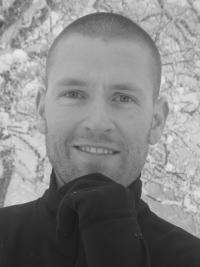MINOAS
- Home
- MINOAS
MINOAS - Yves Wiaux

Title:
The R2D2 deep neural network series paradigm for robust ultra-fast precision imaging in radio astronomy
Abstract:
Mapping the radio sky with the new modern radio-interferometric (RI) arrays requires solving challenging inverse problems for the formation of high-resolution high-dynamic range images from large volumes of visibility data. Current algorithms for image formation fall far short from delivering the joint precision, robustness, and scalability that this demands. This talk will discuss a recently introduced AI version of the traditional imaging algorithm CLEAN, dubbed “Residual-to-Residual DNN series for high-Dynamic range imaging”. R2D2’s reconstruction is formed as a series of residual images, iteratively estimated as outputs of DNNs taking the current image estimate and associated data residual as inputs. We will dive into its algorithmic structure and discuss its validation in simulation and on real RI data, showing that it opens the door to robust ultra-fast precision RI imaging. If time allows, we will discuss a transfer of technology for magnetic resonance imaging in medicine.
Bio:
Yves Wiaux received the MSc degree in Physics and the PhD degree in Theoretical Physics from the Université catholique de Louvain (UCL, Louvain-la-Neuve) in Belgium, in 1999 and 2002 respectively. He was a Senior Researcher at the Signal Processing Laboratories of the Ecole Polytechnique Fédérale de Lausanne (EPFL) in Switzerland from 2003 to 2013, where he created the Biomedical and Astronomical Signal Processing (BASP) laboratory. In 2013, he moved as an Associate Professor at the School of Engineering and Physical Sciences of Heriot-Watt University where he currently runs BASP. He was promoted to Professor in 2016 and currently heads the Institute for Sensors, Signals, and Systems. He is also an Academic Guest at EPFL and a Honorary Fellow at the University of Edinburgh. Among other responsibilities, he chairs the BASP Frontiers Conference series and serves as an Associate Editor of the RASTI and TCI journals. Since 2010, he has led numerous research projects funded by both the Swiss National Science Foundation (SNSF) and the UK Research and Innovation Councils (UKRI). The ethos of BASP is to develop cutting-edge research in computational imaging, from theory and algorithms to applications in astronomy and medicine.
